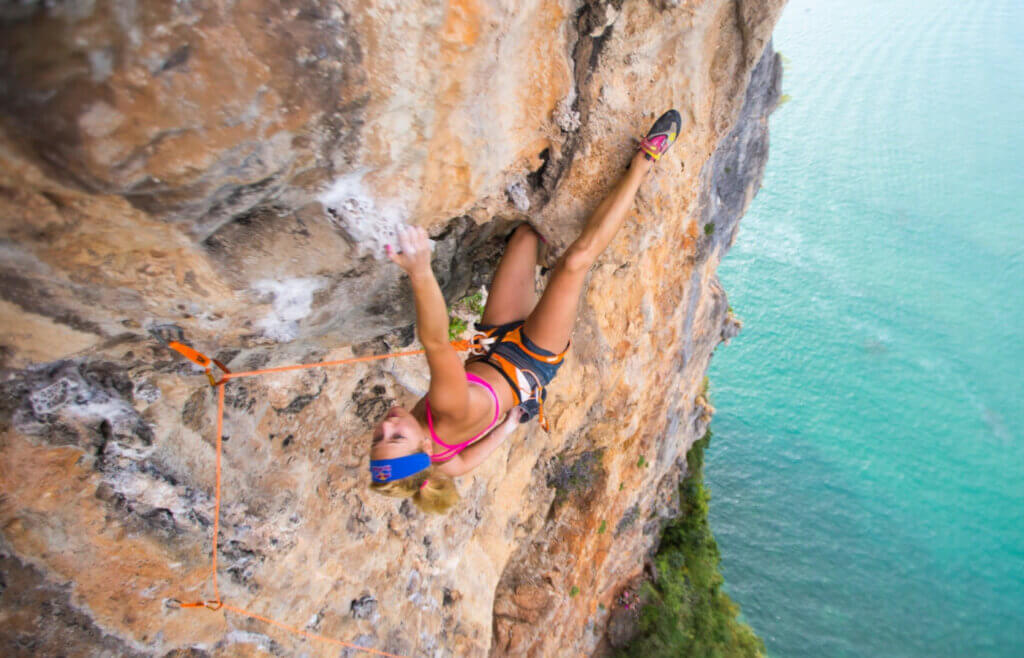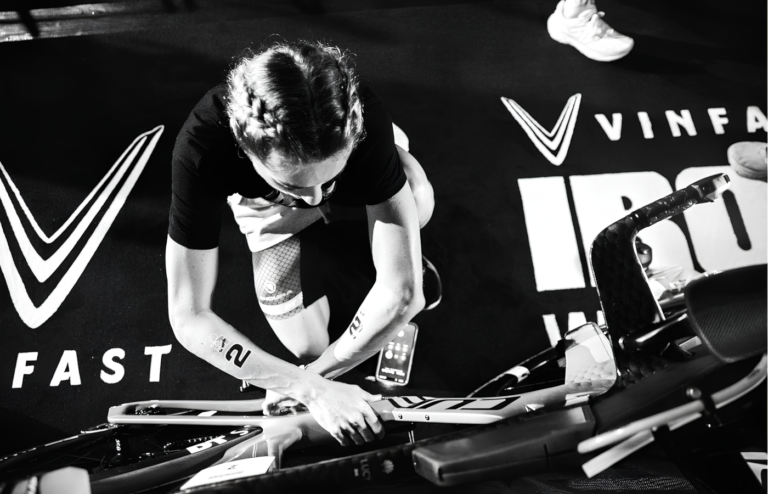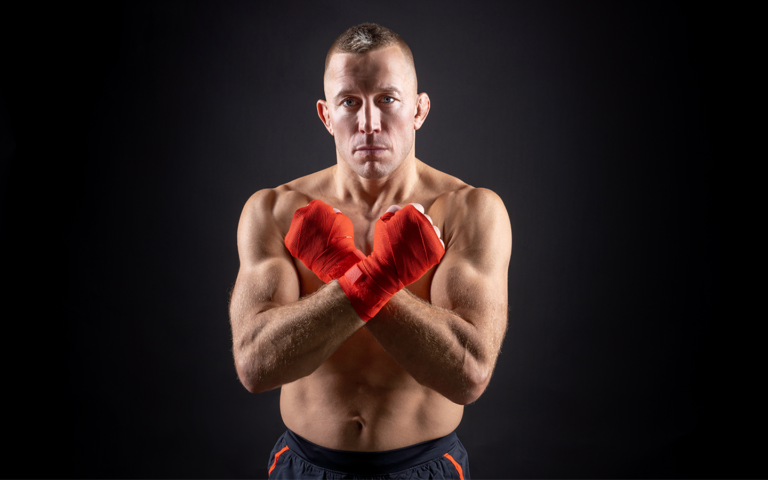Sasha DiGullian was always destined to do great things.
Stepping into SportRock as a six-year-old, a climbing gym nestled within the West of Alexandria, Virginia, she was the only girl amongst a group attending her brother Charlie’s eighth birthday party.
Greeted by a vast wall connected by meandering, twisting, and colorful segments, patterns and routes, this is the first time Sasha has seen a climbing wall.
Immediately, something natural sparks that day, the first moment of a life played out vertically, solving intricate and complex puzzles that many would deem impossible.
That afternoon, she proves a better climber than all the boys at the party, an anomaly within a sport dominated by men.
Soon, backed by her supportive mother, Sasha DiGuillian begins her climbing career after being spotted by Claudi Vidulescu, a Romanian climbing instructor who fine-tunes her early abilities, and before long, two-thirds of the Sasha clan spend weekends traveling around the States competing in competitions.
By 2011, her name was a recurring feature of conversations within the climbing community, a group of people Sasha DiGullian gravitated towards away from the stereotypical teenage upbringing traits.
Success was ingrained within her early career since her first climb in 1998. winning the World Championships for females overall and claiming Silver in the Bouldering World Championships and Bronze in the Duel.
She’s an undefeated Pan American Champion from 2004 to now a three-time US National Champion. Sasha is also the first North American woman to conquer grade 9a, 5.14d, a feat widely recognized as one of the most challenging sport-climbing grades ever achieved by a female athlete.
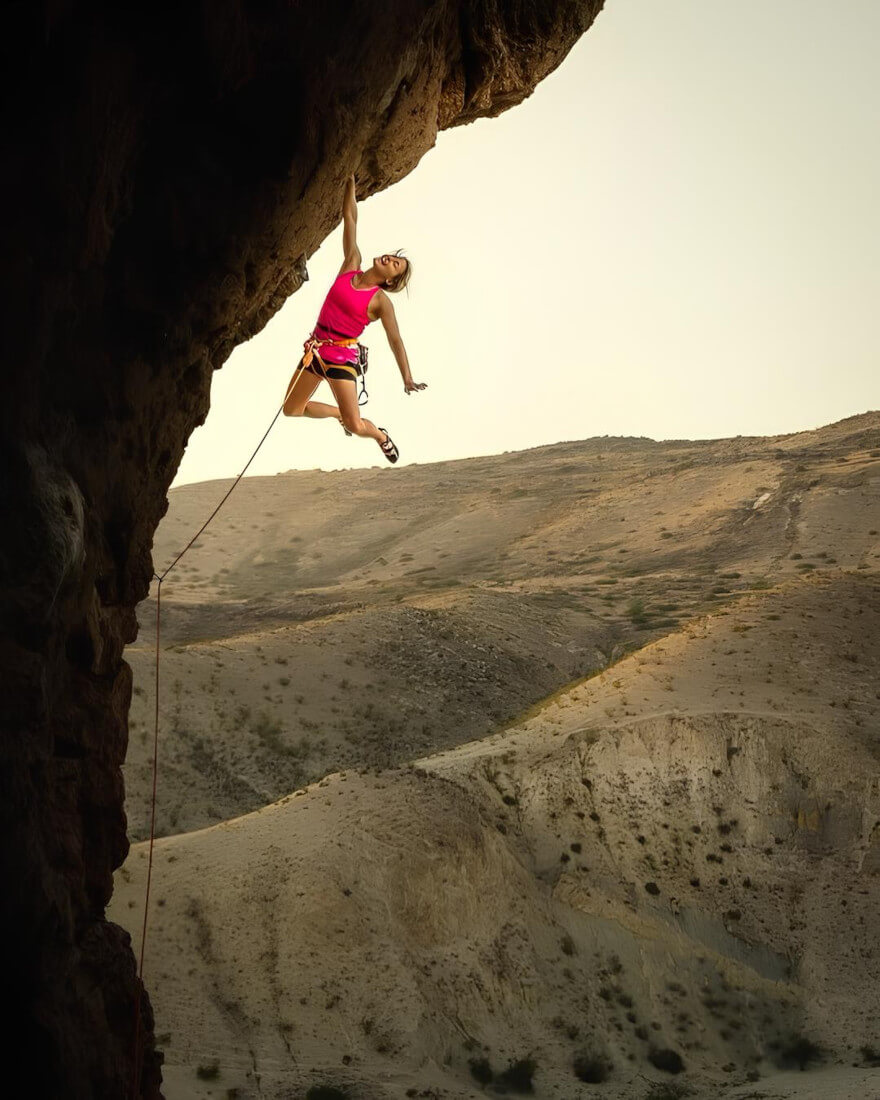
Impressively, she’s succeeded in this monumental feat, twice.
A RedBull athlete who graduated from Columbia University in New York City, Sasha DiGullian has left an unrivaled mark on the climbing world through numerous First Ascents and over 30 First Female Ascents across the globe, including a remarkable First Female Ascent on the formidable North Face of the Eiger.
In 2019, she achieved another awe-inspiring feat by producing and unveiling a documentary film titled ‘The Trilogy,’ which chronicles her extraordinary journey as she became the second individual and the first female to conquer three imposing Canadian Rocky Mountain big walls all within a single season—a formidable accomplishment achieved in 2018.
Sasha fought back from a tumultuous and tragic period in 2020, headlined by the death of a climbing friend—Nolan Symthe—five surgeries to reconstruct her hips, and the ongoing pandemic, to eventually climb Logical Progression—a 2,800-foot 5.13 in Basaseachi, Chihuahua, Mexico, on a wall called El Gigante.
Her love of writing (she graduated in Nonfiction Writing and Business) has led Sasha DiGullian to chronicle her inspiring journey in a new book titled ‘Take the Lead: Hanging On, Letting Go, and Conquering Life’s Hardest Climbs.’
Muscle and Health spoke to the climbing icon about her life on the wall and the many moments and obstacles along the way.
You grew up in Alexandria, Virginia, the location of Sportrock, where you visited for your brother Charlie’s eighth birthday. When you walked in and saw the climbing wall for the first time. Was it love at first sight?
“Essentially, yes! But I didn’t know much about what climbing was… for the first year of climbing, I saw it as a hobby amidst the other sports I was doing. When I stumbled upon my first competition—at the age of seven), I realized there was a whole world to it!”
Early in the book, you mention a climb as “a whole new puzzle to solve.” Do you approach all your climbs with that same mentality, each of them representing their own puzzle to figure out?
“Each climb is unique. That’s what is so special about the sport. There’s always a unique experience—something new to solve—and constantly different challenges to overcome.”
Do you still have your team t-shirt with the Romanian slogan for ‘Shut up and climb’? How important were those days for your progression, and how much of an impact did Claudiu Vidulescu have on your future career?
“I don’t think I still have the t-shirt. I believe that coaches play a major role in youth development in sports and life. Claudiu was an instrumental player in my climbing as a kid to adolescent, but beyond, his approach to training, goal setting, and work ethic has played a role in my life beyond climbing as well.”
“From an early age, his coaching impacted how I think about and approach new challenges—with an extremely diligent work ethic and focus on precision.”
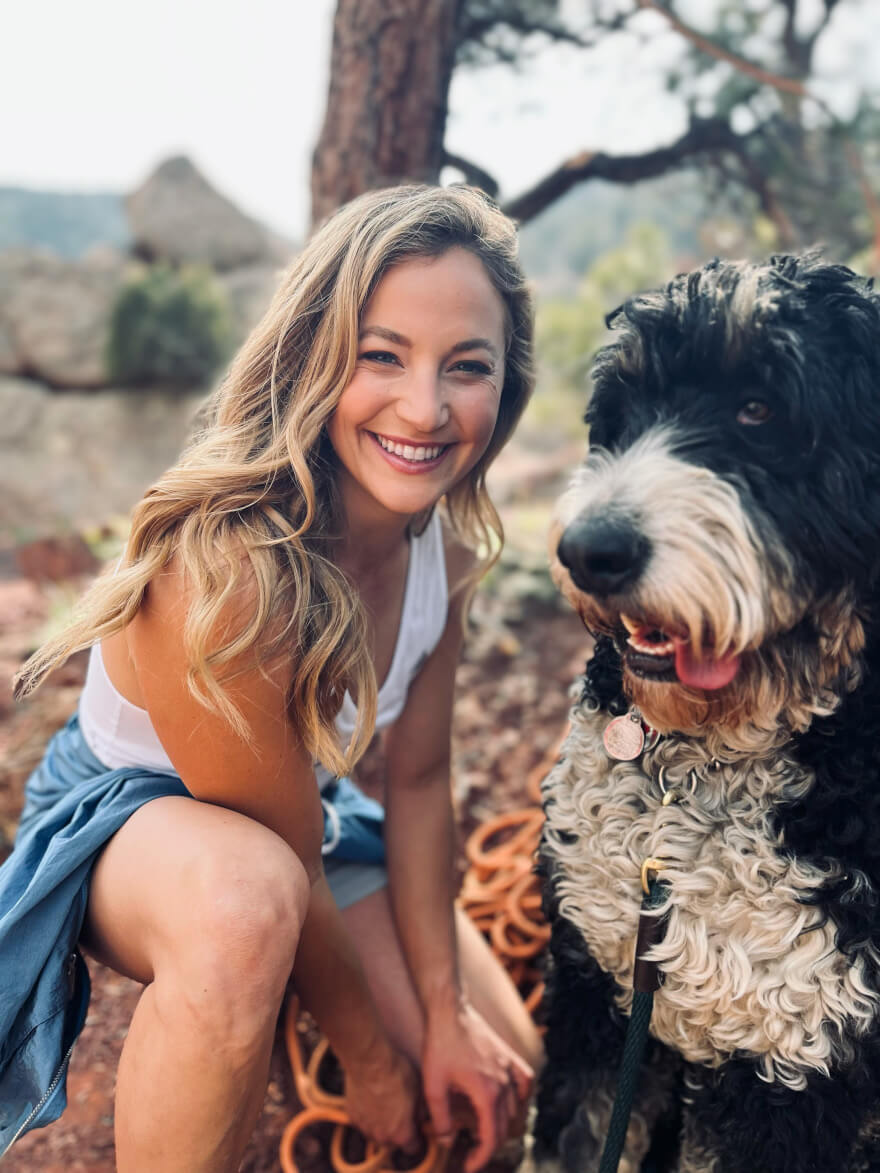
What made Lynn Hill stand out for you as an idol? Have you ever had the chance to meet her?
“Lynn broke barriers in her career, namely being the first human to free climb the Nose of El Capitan.
“We have actually become good friends. Beyond Lynn being a mentor I look up to, we’re now based in Boulder and climb together often. We’re developing a new first ascent together.”
You won gold in the Female Overall World Champion title at the World Championships 2011 in Arco, Italy. Was this a pivotal moment in your career?
“I don’t know if it was as pivotal in the moment to me as it was in what came next. After earning this title, I shifted my focus from indoor climbing to expanding into the outdoors. I also realized that believing in the seemingly impossible is necessary for achieving it.”
The idea of a pro climber attending college was unique. How difficult was it to juggle full-time studies, fly worldwide to participate in comps or press commitments, and try to maintain a social life?
“It was extremely difficult, and my climbing certainly felt the effects of this schedule at times. My body, too. I carried a lot of stress through college—and I learned a lot more about the role in which sleep, nutrition, and proper cross-training play after this period of my life. But, I also wouldn’t change it.
“I was hustling hard and doing what I felt was necessary to advance my career and receive the desired education. It affected my social life as well, but I left college with some lifelong friends that I could pick right back up with exactly where we left things, no matter how long it lapses. That’s something truly special about good friends.”
Was climbing up the side of a casino in Japan your strangest climbing experience? If not, then what beats that?
“Climbing the New York Red Bull’s Arena to get the game ball for the start of one of the soccer games was probably one of my stranger climbing experiences.”
You’ve climbed over 30 free ascents, eight first free ascents. Where does your first-ever big wall ascent of Bellavista in the Dolomites rank among them?
“Bellavista was such a big career moment for me personally. It changed the trajectory of what I wanted out of climbing. I realized that I was absolutely in love with the adventurous, all-encompassing journeys of longer, big wall climbs.”
Did you expect your film ‘The Trilogy’ to do so well and win a People’s Choice Award? What do you think struck a chord with the audience?
“I didn’t know what to think about how The Trilogy would do. It was a bare-bones film that captured the experience very well but in a raw, authentic way. I felt really honored by the fact that it was welcomed so warmly.”
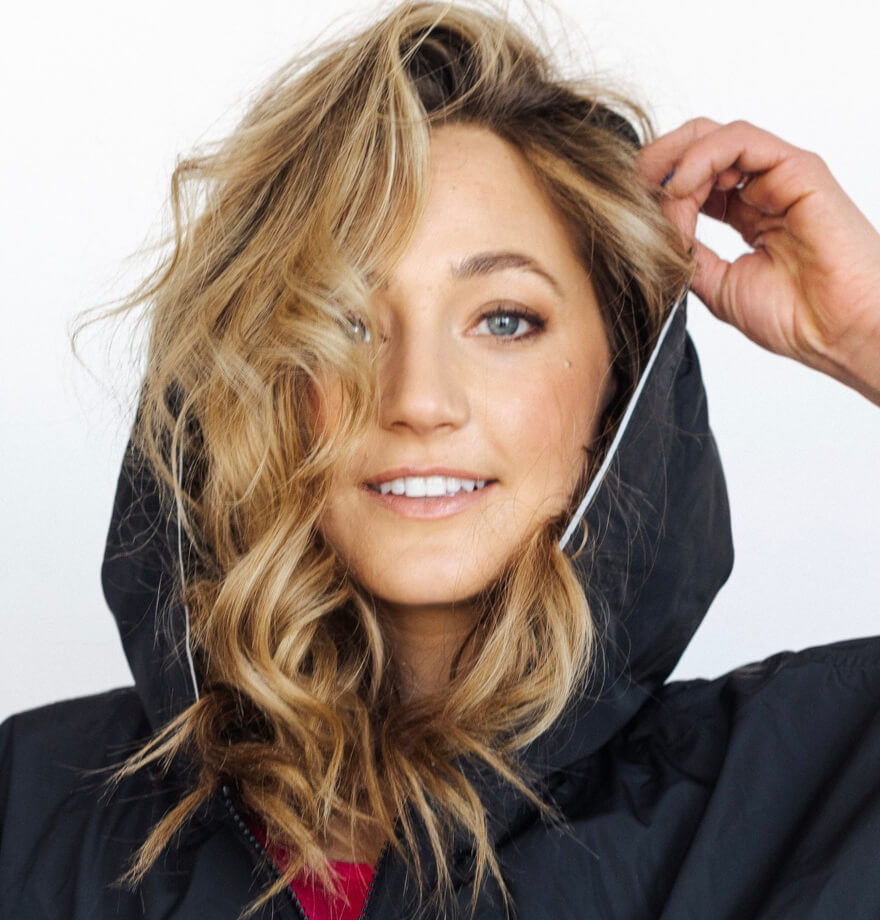
Was 2020 the lowest point for you after the death of Nolan Smythe—which you said you felt responsible for—facing a career-ending injury and multiple surgeries, plus lockdown? How difficult was the period to emerge from?
“It was not the lowest point in my career, but this was a very challenging time for me and the community at large.”
Being unable to climb for the first time since you were six, what did you learn about yourself from being forced to take a break?
“I learned that you can always come back, and likely, with a clearer purpose, respect for your body, and more patience. That’s what it felt like for me!”
How emotional was it when you returned to Logical Progression and summited to honor Nolan’s memory?
“Extremely emotional. I didn’t know if I could ever climb to this caliber again after my five hip surgeries. Returning to a goal that felt lofty before my injuries and completing it after so much confusion, devastation, and fear—confronting it head-on—enabled me to find my strength again.”
What does the future hold for Sasha DiGiulian?
“I am focused on growing my brand, SEND BARS, a superfood nutrition bar company I launched a year ago. I built an all-female team, and we are based in Boulder, CO.
“Our focus is creating delicious, whole food bars, packed with nutrients and adaptogens— with no processed chemicals, natural flavorings, or refined sugars. I also have a big project in Yosemite, a climb with Nimsdai Purja, and a half iron man I am excited about.”
How do you want to be remembered when you retire from climbing and look back on your career?
“That’s a great question and something I ruminate on a lot. I want to be considered a pioneer for climbing as a more mainstream sport. When I started climbing, I was the only person at my school who knew what climbing was.
“In 2011, I became the first North American climber to sign with Adidas, and then in 2012, with RedBull. I went against the grain, embracing commercial opportunities to grow my brand and embrace strength, and femininity as not mutually exclusive through fashion, beauty, and non-outdoor brand work.
“I hope I have inspired the next generation to develop whatever brand for themselves as they desire—and feel empowered to be multifaceted humans.”

